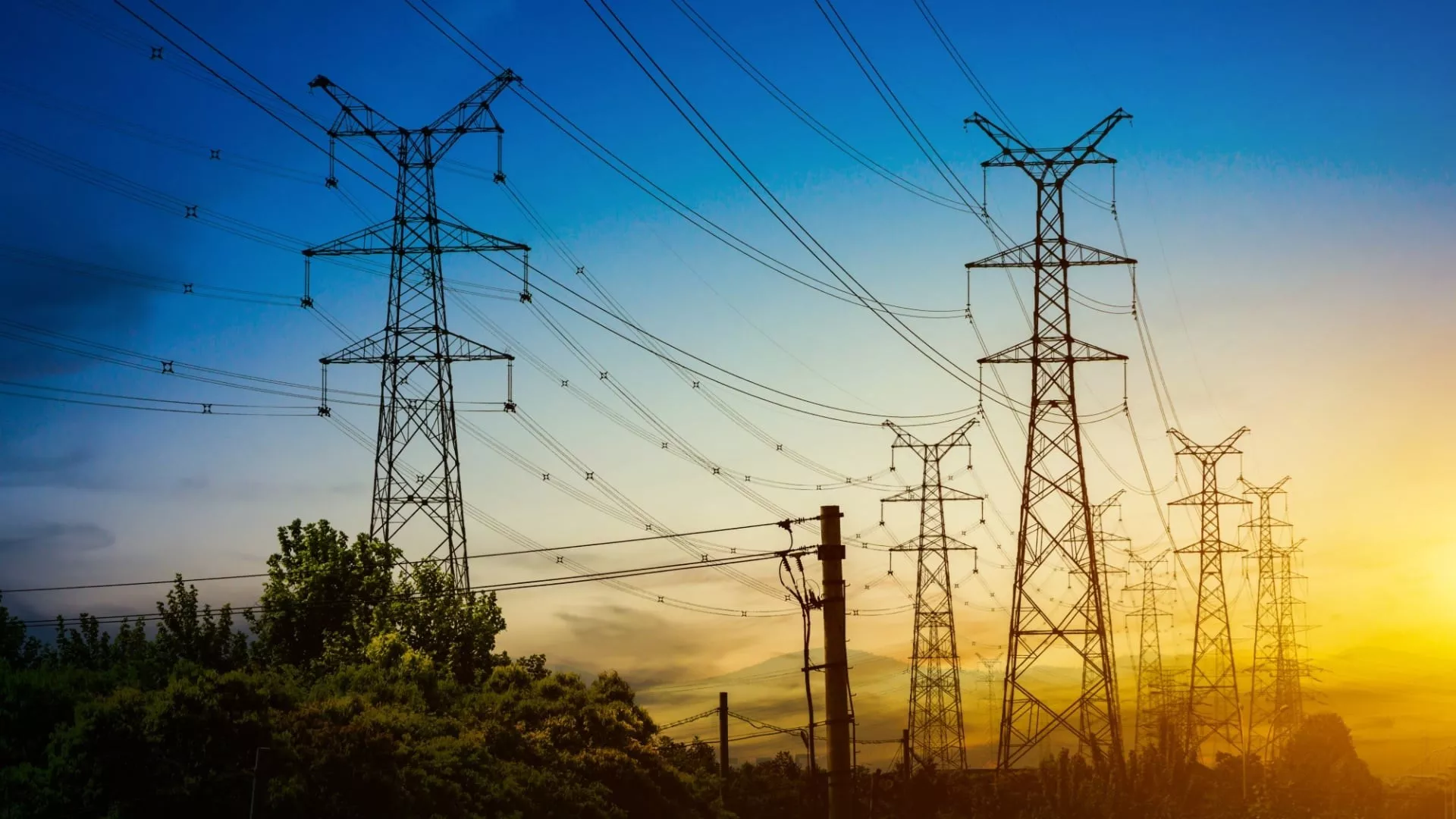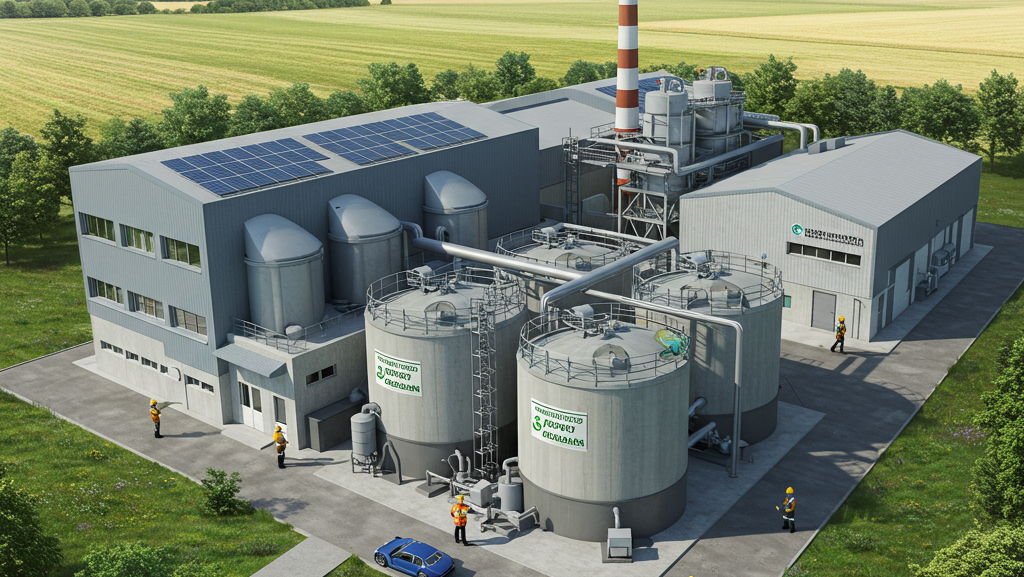Electricity Production Innovations
Mupundu Energy is at the forefront of implementing innovative technologies to transform electricity production in Zambia, particularly through the process of anaerobic digestion. This technique involves the decomposition of organic materials by microorganisms in an oxygen-free environment, ultimately converting biomass into biogas. Mupundu Energy aims to harness this technology to generate 2.5 megawatts (MW) of renewable energy, a significant achievement that addresses the pressing energy shortages facing the country.
The key to this approach lies in utilizing locally sourced organic waste, such as agricultural residues and livestock manure, thus maximizing resource efficiency while minimizing environmental impact. By engaging with local communities, Mupundu Energy not only promotes sustainable waste management practices but also creates a reliable source of renewable energy. This dual benefit aligns with Zambia’s national goals of increasing access to green energy and reducing reliance on fossil fuels.
Furthermore, the 2.5 MW of energy produced is expected to have a meaningful impact on the national grid, particularly through collaboration with the Zambia Electricity Supply Corporation (ZESCO). By integrating renewable energy into the grid, Mupundu Energy contributes to mitigating the intermittency challenges that often accompany renewable sources. This partnership is crucial in ensuring that the produced energy is reliable and readily available for both urban and rural consumers.
Importantly, this project signifies a major step toward sustainable energy solutions in Zambia. By investing in innovative electricity production methods such as anaerobic digestion, Mupundu Energy sets a benchmark for renewable energy initiatives in the region. The commitment to boosting the energy supply not only aids in overcoming current shortages but also serves to inspire similar projects across the country, paving the way for a renewable energy revolution in Zambia.
The Role of Excess Biogas
Mupundu Energy recognizes the significant potential of excess biogas, a byproduct of the anaerobic digestion process, in transforming Zambia’s energy landscape. By employing an innovative strategy for bottling this excess biogas, the organization not only seeks to provide an alternative cooking fuel but also aims to contribute to environmental sustainability. This biogas serves as a cleaner alternative to traditional charcoal, which is heavily relied upon across many households in Zambia. Transitioning to biogas helps mitigate the detrimental effects of charcoal consumption, notably air pollution and respiratory diseases linked to smoke inhalation.
One of the pressing environmental issues in Zambia is deforestation, accelerated by the demand for firewood and charcoal. Utilizing excess biogas as a cooking fuel can substantially reduce the reliance on these resources, ultimately leading to a decrease in the deforestation rates. By promoting biogas, Mupundu Energy is contributing to the preservation of forest ecosystems, thereby maintaining biodiversity and fostering a healthier environment for future generations.
From an economic standpoint, adopting biogas as a renewable energy source offers a range of benefits for local communities. This initiative not only presents an affordable solution for cooking fuel but also reduces the financial burden associated with purchasing traditional fuel sources. As communities begin to embrace biogas, they may experience significant cost savings, which can be redirected towards other essential needs such as education and healthcare. Furthermore, the creation of job opportunities in the biogas production and distribution sectors represents an additional economic benefit, helping to bolster local economies. The dual advantages of providing a sustainable energy alternative while supporting economic growth exemplify the immense potential of excess biogas in Zambia’s renewable energy landscape.
Environmental Impact and Sustainability
Mupundu Energy is at the forefront of fostering a sustainable energy future in Zambia, emphasizing environmental stewardship through its renewable energy initiatives. The organization primarily focuses on harnessing renewable sources, which significantly reduces the nation’s reliance on fossil fuels. This shift is pivotal, as countries worldwide strive for reduced carbon emissions to address climate change challenges.
One of the core components of Mupundu Energy’s strategy is biogas production. By converting organic waste into biogas, the company not only produces a clean energy source but also mitigates the environmental impact of waste disposal. This approach contributes to lowering the carbon footprint associated with traditional energy generation methods. The implementation of biogas technologies not only supports energy resilience but also creates a circular economy by recycling organic materials.
Additionally, Mupundu Energy’s initiatives promote biodiversity. The company is committed to ensuring that its operations do not adversely affect local ecosystems. Through careful planning and community engagement, Mupundu Energy works to safeguard existing natural habitats, making strides toward preserving Zambia’s rich biodiversity. Their projects often involve reforestation and habitat restoration, which help replenish local flora and fauna while enriching the environment.
Moreover, Mupundu Energy’s sustainability practices include regular environmental assessments and adherence to strict eco-friendly standards. These measures ensure that their energy projects align with national and international environmental policies. By prioritizing sustainability, Mupundu Energy not only enhances its environmental credentials but also sets a benchmark for renewable energy practices within the region.
This commitment to sustainable operations and reducing the ecological footprint strengthens Zambia’s journey toward a greener future. Ultimately, Mupundu Energy’s multifaceted approach highlights the importance of integrating renewable energy practices, contributing positively to the environment, and mitigating the impacts of climate change.
Future Prospects and Community Engagement
Mupundu Energy stands at the forefront of Zambia’s renewable energy revolution, paving the way for a cleaner, more sustainable future. As the demand for renewable energy sources continues to rise globally, Mupundu Energy is well-positioned to expand its operations, not only within Zambia but also in the broader Southern African region. By leveraging innovative technologies and sustainable practices, the company has the potential to transform the energy landscape, with a particular focus on solar power, which remains abundant in the region. Their commitment to enhancing the energy mix in Zambia is evident through ongoing projects designed to increase accessibility to electricity in underserved rural areas.
Equally crucial to the future success of Mupundu Energy’s initiatives is the aspect of community engagement. Recognizing that community support is essential for the viability of any energy project, Mupundu Energy actively involves local stakeholders and residents in their planning processes. By fostering partnerships with community leaders and organizations, the company encourages dialogue and collaboration, ensuring that the needs and concerns of local populations are addressed. This grassroots approach promotes transparency and builds trust, laying the groundwork for the acceptance of renewable energy solutions.
Furthermore, community engagement initiatives often include educational programs aimed at raising awareness about the benefits of renewable energy. By empowering local communities through training and capacity-building workshops, Mupundu Energy is not just providing energy; they are creating long-term advocates for sustainable practices. The success of these programs is reflected in increased local participation and support for renewable energy initiatives.
In conclusion, the future of Mupundu Energy appears promising, marked by opportunities for growth and a strong emphasis on stakeholder engagement. By continuing to forge meaningful connections with communities, Mupundu Energy will likely enhance the sustainability of its projects and lead the way for transformative energy solutions across Zambia and beyond.





